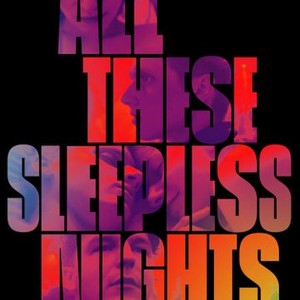
So, I haven’t seen either of your two other features, I confess. Those are universal things, and definitely the stuff that I wanted to concentrate on. That having been said, the things that the characters are going through are completely universal: the quest to see who you actually are experimenting with different versions of yourself making mistakes and having epiphanies and coming up with things about yourself that have been discovered hundreds of times before in every generation. What I meant is that, from the perspective of a documentary, and the Polish people, it does really capture those situations and people, although some of the details in their life have been changed, even if, overall, the bigger picture fits. Do you see it as speaking to something beyond the Polish experience? It’s not uniquely Polish, in some places, though in others it certainly is. We have the specificity of Warsaw, but it could almost be anywhere, in terms of that post-college, twentysomething angst. As much as your film is clearly grounded in Polish life, it still feels very universal. It’s interesting that you talk about how people in Warsaw have come up to you and said that your film represents what they experienced. I was just curious how you thought of your film. HtN : Well, we’re in an age of hybridity, as far as documentaries go, so I’m not, myself, pushing for a definition. This film was supposed to appeal more to the heart than to the brain. How do you express emotions or beautiful things like physical love? How do you put them in a documentary? You can have the characters tell it to the other characters, but it doesn’t make you really feel it. And I feel that I did a good job capturing what I was noticing and seeing around that time and turning it into a cinematic language. Many, many people have told me that that is exactly how their life is, in Warsaw. I think it really has to come down to what is your definition of a documentary the philosophical concept behind it. It was a conscious choice to have it premiere in the documentary competition at Sundance and start its life there, because I think the film is very much tethered to reality and to me it is definitely a documentary about the emotions of youth and what it means to be young. I think that some films are easy to label, and it’s good to label them, and I think some…you know, honestly, I can’t answer that question. Michal Marczak: I like that there is no clear genre designation, and would like to keep it that way. If go to IMDb right now and look up your film, there is no clear genre designation. Hammer to Nail : When I saw your film last year for its Sundance release, it was pitched as a documentary, and in fact it won a Directing Award for World Cinema Documentary at that festival.

Here is a condensed digest of our conversation, edited for clarity. I did not re-watch it before our conversation, but remember being simultaneously entranced by its mise-en-scène and disappointed by some parts of its content (what is new in feeling lost after graduation?).
ALL THESE SLEEPLESS NIGHTS IMDB MOVIE
Neither entirely fiction nor nonfiction, the movie is part of a new wave of films that defy genre classification.


A beautifully shot, elliptical meditation on post-college malaise, the film uses ostensible non-actors (we learn more about this in the interview, below) playing mostly true versions of themselves. So, be prepared to spend a little extra this summer if you're changing the thermostat each night.I recently spoke by phone with Polish filmmaker Michal Marczak on the occasion of the recent theatrical release of his 2016 Sundance-winning documentary hybrid feature All These Sleepless Nights ( which I reviewed last year). However, the US Department of Energy suggests that the ideal temperature for your thermostat this summer is 82 F when sleeping and 85 F when out of the house to ensure maximum energy savings. But if you feel like you've tried everything and you still wake up a sweaty mess, you might just need to nudge your nighttime temp down a few notches.Īccording to the National Sleep Foundation, most experts agree that 65 degrees Fahrenheit (18.3 degrees Celsius) is the ideal sleeping temperature because it helps your body maintain its natural core temperature at night. Turning your home into an arctic tundra via air conditioning definitely jacks up your electricity bill, after all. This probably seems obvious, but many people are hesitant to turn the thermostat down past a certain temperature. Pop your pillowcase in the freezer for a few hours for bedtime bliss.


 0 kommentar(er)
0 kommentar(er)
